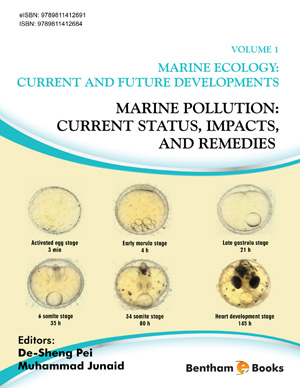Abstract
Marine life remains far less well documented than terrestrial biodiversity. The main reason resides in the vastness of the ocean. Ocean waters, with an average depth of ≈3,800 m, cover 71% of the world’s surface. The difficult access, the complexity of the logistics (any study below the top few meters of the ocean requires large means, specialized personnel, and equipment), and the high cost of research have determined the majority of studies being performed in the terrestrial environment. However, in recent times, this severe imbalance has started to reverse. This is mainly due to the implementation of supra-governmental cooperation programs. Due to human-driven ecosystems alteration, over-fishing, ocean acidification, and chemical pollution (together with other threats), multiple marine species are endangered, so this effort is more than ever relevant and eminently urgent. Recently, the Global Ocean Observing System (GOOS) has proposed, the development of an integrated framework for continued and systematic ocean observation. This framework is based on Essential Ocean Variables (EOVs) aiming to provide a credible response to scientific and societal issues, a high feasibility for sustained observation, and cost-effectiveness. Ecosystem EOVs have been developed. In this framework, biodiversity will be assessed based on the status of ecosystem components, nominate phytoplankton biomass and diversity, zooplankton biomass and diversity, fish abundance and distribution (as well as marine turtle, bird and mammal abundance and distribution). Recommendations for each EOV, including what measurements are to be made, but up to this point those recommendations do not exist. This chapter will try to identify common sampling procedures for the most diverse and abundant marine organisms considered as ecosystem components under the EOVs, i.e., phytoplankton, zooplankton, and fish.
Keywords: Marine Environment, Essential Ocean Variables (EOVs), Phytoplankton, Zooplankton, Fish.






















